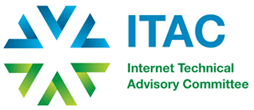 By Josie Brocca, Policy Research and Advice, OECD
By Josie Brocca, Policy Research and Advice, OECD
Few aspects of our lives remain untouched by digitalisation. The digital economy permeates the world economy, and has profound implications on how individuals and societies interact, live and work.
Putting in place the right policy and regulatory frameworks to support the digital environment and prepare for the economic and social changes ahead is essential. From 21-23 June 2016, Ministers, the business community, civil society, labour and the Internet technical community will gather in Cancún, Mexico, for an OECD Ministerial Meeting on the Digital Economy: Innovation, Growth and Social Prosperity.
Governments and policymakers must look at the digital economy as part of all economic and social policy development and approach it in a more holistic manner if the benefits are to be maximized in the future. Together, they will discuss better policies on a range of issues, including:
- Internet openness – global data flows, which are at the core of the digital economy, have a significant impact on innovation, trade, global value chains and society as a whole. This innovation is driving economic growth and creating new industries – an Internet of Things is emerging.
- Global connectivity – as more of the world moves onto broadband networks, both fixed and mobile, striking the right balance between innovation, consumer demand for products and services and infrastructure investments to meet these growing demands is important to the future growth of the digital economy.
- Trust and digital risk management – trust is also foundational to the on-going development of the digital economy. It underpins business, institutional and personal relationships and is particularly important in a global online environment. Protecting and securing the digital environment in an age of billions of connected devices that continuously collect personal information is a complex task that goes beyond technical and legal challenges.
- Jobs and skills – the increasing use of digital technologies is raising the demand for new skills including non-technical ones that are equally necessary to be able to use these technologies efficiently. These skills mixes are also required outside of work to ensure people are equipped to make use of digital technology in their day to day lives.
The upcoming Ministerial meeting builds on previous OECD Ministerial meetings on the digital economy – the 1998 OECD Ministerial Conference on Electronic Commerce in Ottawa and the 2008 Ministerial Meeting on the Future of the Internet Economy in Seoul.
Ottawa resulted in a global action plan for the development of e-commerce that targeted important policy areas such as privacy and consumer protection. Seoul recognised the essential nature and function of the Internet as a platform for growth and the need for governments to work with all stakeholders to guide its development particularly in the areas of Convergence, Confidence and Creativity.
Cancún will mark another pivotal point in the evolution of the digital economy, one in which digitalisation is increasingly pervading all economic sectors, providing huge benefits for all actors but also effecting social interactions, business and government processes, laws and regulations, and jobs and skills.
For more information on the Ministerial and participation please visit: http://oe.cd/cancun2016
